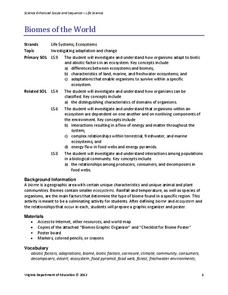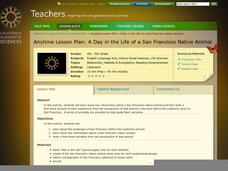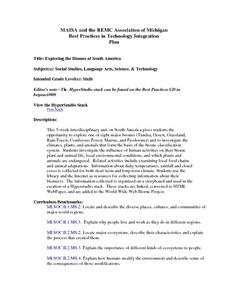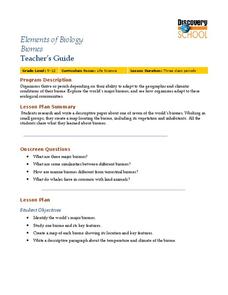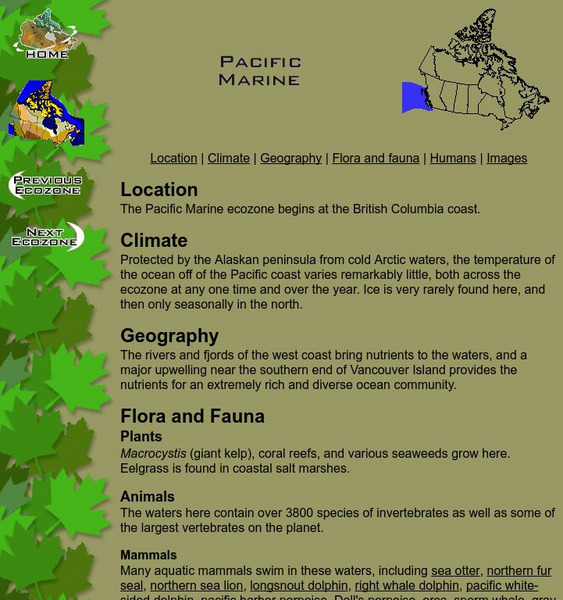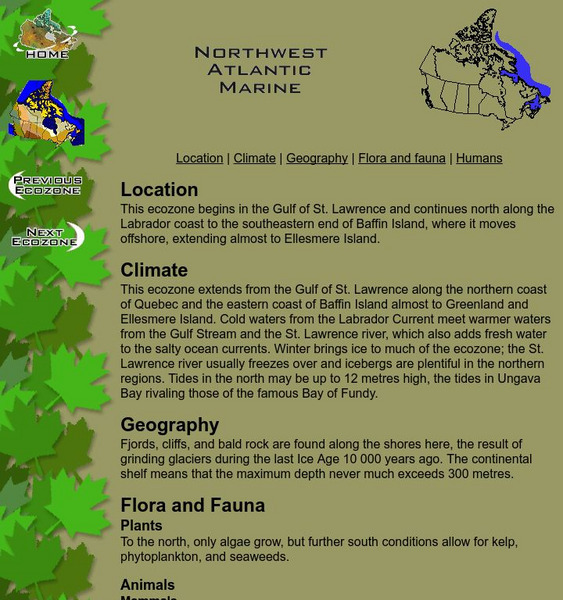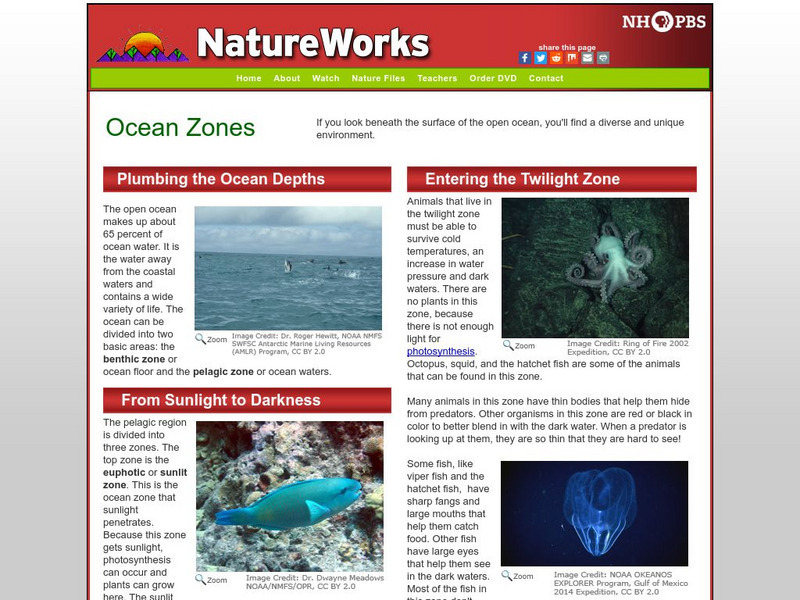University of Georgia
Land Biomes Project
Challenge scholars to research a biome and create a presentation for the producers of Survivor to choose their ecosystem for the next season's show. The materials include outlines, worksheets, and grading rubrics for individuals as well...
Curated OER
Biomes Internet Lesson
In this biomes worksheet, students use an on line source to complete a table of the Earth's biomes. Students include the types of plants in each biome, the types of animals, the climate and any details about the biomes. Students answer...
Virginia Department of Education
Biomes of the World
Incorporate knowledge about biomes and ecosystems in multiple ways while encouraging creativity. Emerging ecologists collaborate and perform research to complete a graphic organizer about various biomes of the world. They conclude the...
Polar Trec
Arctic Smorgasbord!
Two blooms of phytoplankton, instead of just one, now occur in the Arctic due to declining sea ice, which will have widespread effects on the marine life and climate. In small groups, participants build an Arctic food web with given...
Curated OER
Animals and Their Biomes
Students categorize animals according to their natural biomes using biome and animal flashcards.
California Academy of Science
A Day inthe Life of a San Francisco Native Animal
Although the lesson is specifically about the San Francisco Bay area, it's good enough to be adapted to any local region. Children research what the landscape in San Francisco was like prior to settlement, they consider the types of...
Curated OER
Earth's Biomes
Tenth graders examine characteristics and animals of terrestrial biomes. In this Earth's biomes instructional activity, 10th graders view a PowerPoint, take noes, sort pictures, research biomes, and create a diorama of a biome for...
Curated OER
Exploring the Biomes of South America
Sixth graders complete a five-week unit investigating the eight major biomes of South America. They conduct Internet research, collect short-term and long-term climate data, and create a HyperStudio slideshow stack about a selected biome...
Curated OER
Biomes
Students explore the worlds biomes and see how organisms adapt to these ecological communities. In this world's biomes lesson plan students research and write a paper about one of the world's biomes.
Curated OER
Diversity Ecosystems
Learners work in teams to characterize their biomes and compare them to the biomes of the rest of the class. In this biomes lesson plan, students complete a bean activity, relate it to the diversity in biomes, and then research and...
Curated OER
A Day in the Life of a San Francisco Native Animal
Young scholars write from an animal's perspective. In this writing lesson students explore the landscape of San Francisco prior to the arrival of the explorers. Young scholars research animals indigenous to the area.
Science Struck
Science Struck: Facts About the Marine Biome
Describes the characteristics of the marine biome, the plants and animals that live in each of the four ocean zones, coral reefs and estuaries, the climate of the marine biome, and the marine food web.
McGill University
Mc Gill University: Canadian Biodiversity: Ecozones: Arctic Archipelago Marine
The Arctic Archipelago Marine ecozone includes Hudson Bay and most of the water surrounding the islands of Nunavut and the Northwest Territories. This is a brief, concise description of the location, climate, geology, and flora and...
Science Buddies
Science Buddies: Home Sweet Biome: How Do Plants Grow in Different Environments?
In this science fair project you will learn about biomes and how different climatic conditions affect plant growth. This can explain why some plants and animals are similar in different areas of the country, and in other parts they are not.
McGill University
Mc Gill University: Canadian Biodiversity: Ecozones: Pacific Marine
The Pacific Marine ecozone begins at the British Columbia Coast. This is a brief, concise description of the location, climate, geology and flora and fauna. It includes some images of the animals and birds native to the location. Many of...
McGill University
Mc Gill University: Canadian Biodiversity: Ecozones: Northwest Atlantic Marine
The Northwest Atlantic Marine ecozone begins in the Gulf of St. Lawrence and extends to the southeastern end of Baffin Island. This is a brief, concise description of the location, climate, geology, and flora and fauna. It includes some...
University of California
Ucmp: The World's Biomes
The University of California Museum of Paleontology hosts this site devoted to the study of the earth's biomes, which are the world's major communities, classified according to the predominant vegetation and adaptations of organisms to...
CK-12 Foundation
Ck 12: Biology: Biomes Study Guide
This comprehensive study guide covers the main terms and concepts needed for a unit on biomes.
The Association of the British Pharmaceutical Industry
Abpi: Human and Animal Habitats
An interactive learning game where students answer whether or not certain environments would be suitable for different animals. Printable worksheets are available for review at the end of the activity.
PBS
Nh Pbs: Nature Works: Ocean Zones
Discover more about the underocean environment at this site that surveys animals, environmental factors such as light and temperature, currents, animals, plants, and the like.




